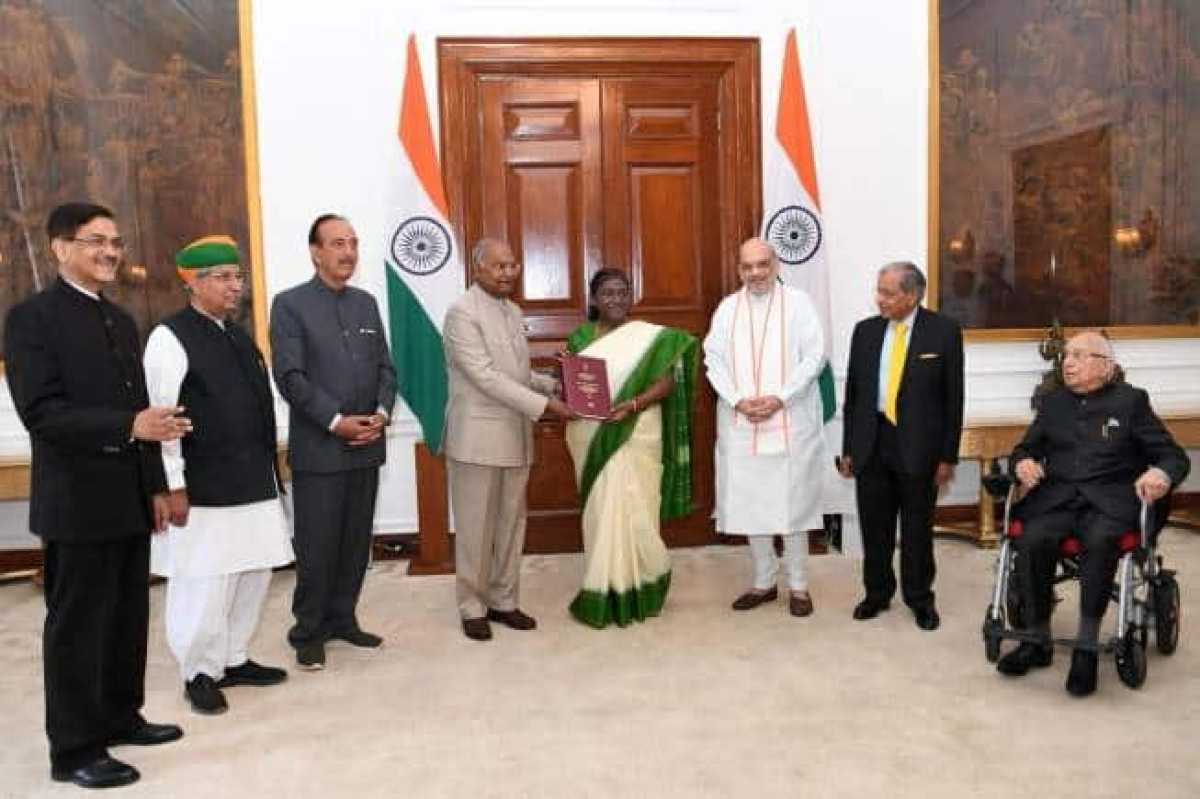Politics
High-Level Committee Submits One Nation, One Election Report to President Murmu

The High-Level Committee (HLC) on One Nation, One Election presented its extensive report to President Droupadi Murmu on Thursday morning. The report, comprising 21 volumes and 18,626 pages, addressed the concept of simultaneous elections in a comprehensive manner. Led by former President Ram Nath Kovind, the committee included key members like Union Home Minister Amit Shah and DPAP leader Ghulam Nabi Azad.
The concept of ‘One Nation, One Election’ refers to the coordination of elections for Lok Sabha, state Legislative Assemblies, and local bodies simultaneously. Currently, these elections are held separately at different times based on the individual terms of each elected body.
Despite the historical occurrence of simultaneous elections in select states like Bihar, Bombay, and others in 1957, the country transitioned to staggered elections post the 1967 elections due to dismissals of state governments and coalition government collapses.
Over the years, the relentless efforts by the central government, state governments, and political parties, in collaboration with the Election Commission of India, have sparked discussions on the idea of holding simultaneous elections.
The committee’s report highlighted significant advantages of implementing simultaneous elections, including substantial cost savings, reduced uncertainty, improved efficiency, and enhanced citizen participation.
The Kovind panel, consisting of eminent personalities like N K Singh and Harish Salve, proposed crucial recommendations such as amending the Constitution in two steps to enable synchronized elections for various tiers of government.
Furthermore, the committee suggested the integration of a single electoral roll and identity card system, logistics planning for efficient execution, and protocols for scenarios like hung Houses or no-confidence motions.
Overall, the committee’s detailed recommendations aim to streamline the electoral process by harmonizing elections at all levels of governance, laying out a structured framework for conducting concurrent polls in the future.












